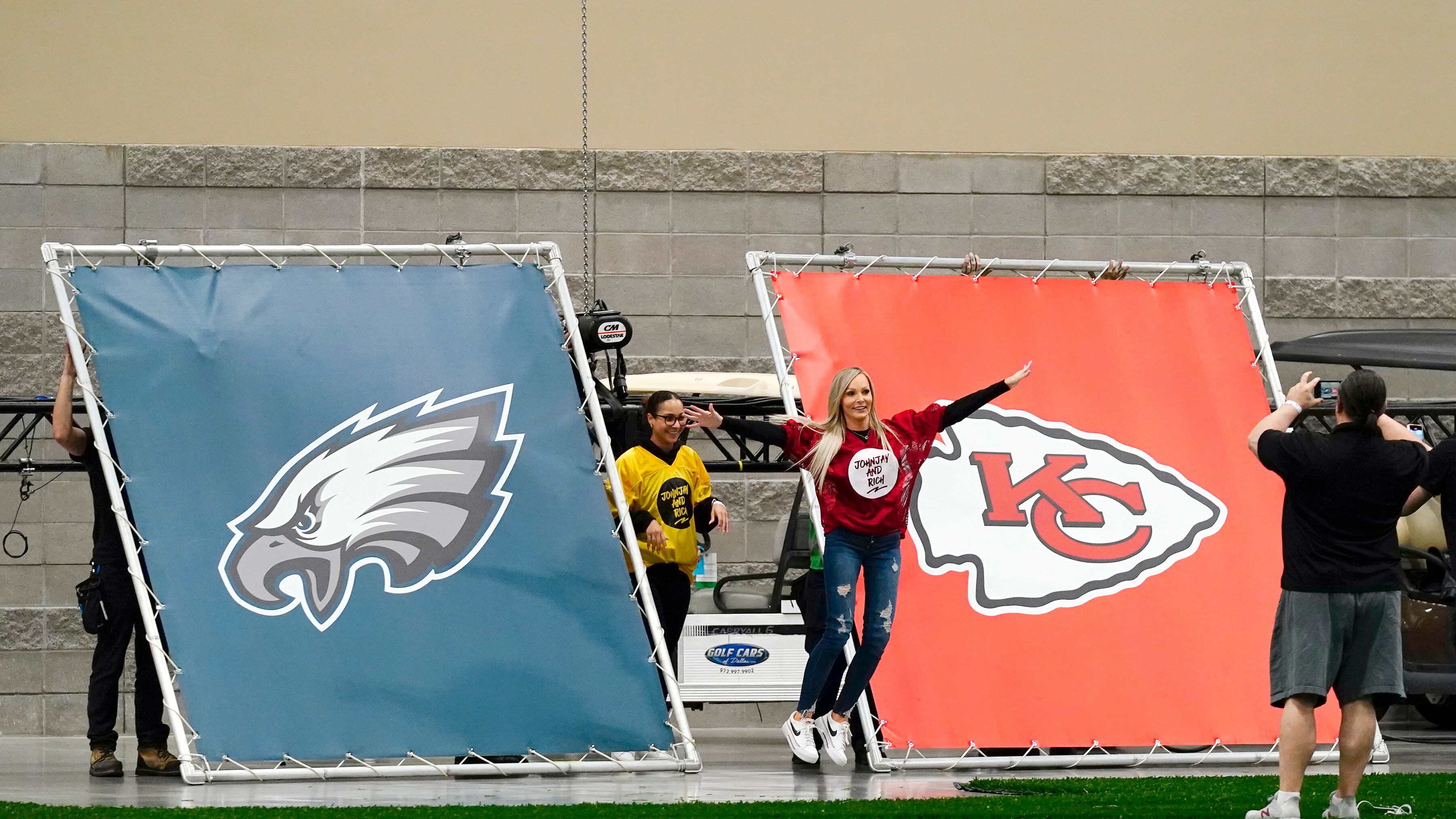The top-seeded Kansas City Chiefs and Philadelphia Eagles are on the way to a Super Bowl ticket price worthy of the NFL's two best teams meeting each other.
After a slight softening of ticket prices following the conference championship games, Super Bowl LVII seats saw an uptick over the course of the week: The game’s “get in” cost went from $5,600 per ticket one week ago to roughly $6,000 going into Monday morning. “Get in” prices reflect the cheapest seat in the stadium, including broker fees.
According to data from online ticket marketplace TicketIQ, that $6,000 mark keeps Super Bowl LVII among the most expensive “get in” tickets in Super Bowl history, ranking behind only the 2020 Super Bowl between the Chiefs and San Francisco 49ers in Miami (which hit $6,603) and the 2015 Super Bowl between the New England Patriots and Seattle Seahawks in Glendale (which notched a record $8,764, due to a ticket speculator meltdown). The third place all-time slot represents a strong demand, despite the Chiefs and Eagles having both won Super Bowls in the past five seasons, not to mention Glendale lacking the draw of rotational tourist hotspots like Miami and New Orleans.
In what has become an extremely well-regulated inventory market for Super Bowl tickets, it’s suggestive of two things: The fan bases of the Chiefs and Eagles are living up to the expectation that they would travel for this game; and the NFL’s Super Bowl ticket demand is continuing a strong showing following the reduced-capacity COVID-19 pandemic game in 2021.
Interestingly, the average price for Super Bowl LVII tickets has remained fairly stable, dropping only slightly from the conclusion of the conference championship games. Following the AFC and NFC title games on Jan. 29, the average price of a Super Bowl LVII ticket was around $9,720, according to TicketIQ data. That average price is now down to around $9,400 as we approach “Moving Monday” — the Monday before the Super Bowl, which some brokers believe is a line that begins to showcase how prices will trend later in the week. Inventory across secondary market platforms has also been fairly consistent, with a total of roughly 2,500 to 2,700 tickets available each day over the past week.
It’s a far cry from the volatility of ticket prices the last time this game was in Glendale. Eight years ago in Super Bowl XLIX, this same site became host to the biggest ticket panic in the game’s history. That was thanks largely due to secondary market speculators who bet against Super Bowl ticket prices for the 2015 game and spent months selling tickets they didn’t have in hand. The theory behind the short-selling was fairly simple: Sell the seats to buyers months in advance, then fill the orders close to the game and make a profit by scooping up seats that were cheaper than the ones they had already sold. The only issue: The market went in the opposite direction and a stranglehold on inventory sent prices into the stratosphere.
Speculators who sold seats to the game anywhere from $2,500 to $4,000 in advance were suddenly scrambling to fill orders that were spiraling to between $8,000 to $9,000 per ticket. The “melt up” resulted in some speculators booking losses in the hundreds of thousands of dollars or more. Some declined to fill orders and instead went out of business, losing everything in arguably the biggest Black Swan event in ticket selling history.
While that’s unlikely to happen again in Super Bowl history, it doesn’t mean tickets can’t still see sizable price increases over the course of the week. How this one goes remains to be seen, but brokers will be watching very closely over the next 48 hours to see whether the trend falls off or pushes for record territory.






